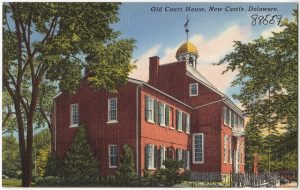Posted in Business Litigation, Business Start Ups, Corporate Law

The case, Ascension Insurance Holdings, LLC v. Underwood, involves a Delaware limited liability company that bought assets and goodwill from an insurance company partially owned by Robert Underwood, who lives in California. Ascension only does business in California, but the purchase agreements stated that any disputes would be resolved under Delaware law. Ascension sued Mr. Underwood in Delaware to enforce a non-compete agreement under Delaware law.
Delaware courts will generally go along with choice of law provisions in legal documents, but this case shows it’s not that simple. California was seen as having a materially greater interest in the outcome than Delaware so California law was applied. Just because an agreement states Delaware law applies, a Delaware court may find otherwise.
California law and public policy run against non-compete agreements because of the goal of wanting employees to be able to freely take advantage of the job market. There’s an exception if the sale of a business (including its good will) are involved and the non-compete is part of the overall agreement.
Ascension was unsuccessful because of is the number, complexity and timing of all the agreements between it and Mr. Underwood.
- A non-compete provision in the asset purchase agreement was enforceable under California law because Mr. Underwood sold his equity interest, including his goodwill.
- Ascension attempted to enforce an extension of Mr. Underwood’s original non-compete which was part of another set of investment documents Mr. Underwood signed six months after the original deal closed.
- The court found Ascension couldn’t merge the first, enforceable non-compete agreement with the later documents because those documents weren’t finalized at the same time Mr. Underwood sold his business interests.
- The later extension was not viewed as an exception to California’s non-compete ban and was unenforceable.
Businesses should understand that a desire that an issue be decided under another state’s laws doesn’t mean that will actually happen, even if such language is part of an agreement. Non-compete agreements that are part of the sale of a business are enforceable in California, but trying to add a non-compete agreement months after a sale probably won’t stand up in court.
If you have any questions about non-compete agreements and California law, contact our office so we can talk about your goals, issues and how the law applies to your situation.
